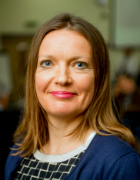 Stephanie Bramley is a Research Associate at the NIHR Health & Social Care Workforce Research Unit, King’s College London. (690 words)
Stephanie Bramley is a Research Associate at the NIHR Health & Social Care Workforce Research Unit, King’s College London. (690 words)
Unit researcher Stephanie Bramley attended the Society for the Study of Addiction Annual Conference on 7th and 8th November 2019 in Newcastle-Upon-Tyne. During the conference Stephanie presented Unit research – Improving understanding of migrant gambling in the UK: Insights from three studies.
Day one of the conference covered a range of topics including the use of medical cannabis in the U.K.; the marketisation of addiction treatment provision; addiction and vulnerable populations; and for the first time a session about gambling addiction. Continue reading

